
To include your event in the Briefing and Live Calendar, please fill out this form.
Weather: Mostly sunny. Showers and thunderstorms likely in the afternoon. Highs in the mid 90s. South winds 5 to 10 mph. Chance of rain 70 percent. Heat index values up to 105. Sunday Night: Partly cloudy. Showers and thunderstorms likely, mainly in the evening. Lows in the mid 70s. Southeast winds 5 to 10 mph. Chance of rain 70 percent.
- Daily weather briefing from the National Weather Service in Jacksonville here.
- Drought conditions here. (What is the Keetch-Byram drought index?).
- Check today’s tides in Flagler Beach here.
- tropical cyclone activity here, and even more details here.
Today at a Glance:
Palm Coast Farmers’ Market at European Village: The city’s only farmers’ market is open every Sunday from noon to 4 p.m. at European Village, 101 Palm Harbor Pkwy, Palm Coast. With fruit, veggies, other goodies and live music. For Vendor Information email [email protected]
‘The Guy Who Didn’t Like Musicals’ at City Repertory Theatre, at 7:30 p.m. Thursday July 18, Friday July 19, Saturday July 20 and Monday July 22. A matinee performance will be at 3 p.m. Sunday July 21. In CRT’s black box theater at City Marketplace, 160 Cypress Point Parkway, Suite B207, Palm Coast. Tickets are $30 adults and $15 students, available online at crtpalmcoast.com or by calling 386-585-9415. Tickets also will be available at the venue just before curtain time. See Rick de Yampert’s preview: “Alien Menace and Combustible Dancing Shake Up City Repertory Theatre with “The Guy Who Didn’t Like Musicals.”
Al-Anon Family Groups: Help and hope for families and friends of alcoholics. Meetings are every Sunday at Silver Dollar II Club, Suite 707, 2729 E Moody Blvd., Bunnell, and on zoom. More local meetings available and online too. Call 904-315-0233 or see the list of Flagler, Volusia, Putnam and St. Johns County meetings here.
Iration and Pepper – Daytrippin in Paradise Summer 2024 Tour, at the St. Augustine Amphitheatre, 1340C State Road A1A South, St. Augustine, 5:30 p.m. Iration is an alternative/reggae group originally formed in Isla Vista, CA. Their deep-rooted island influence and Hawaii upbringing is fused with elements of rock, pop and soul to create smooth, uplifting original sounds. The group is made up of members Micah Pueschel (Guitar/Lead Vocals), Adam Taylor (Bass), Joseph Dickens (Drums), Cayson Peterson (Keyboard/Synth), Micah Brown (Guitar/Vocals), and Drake Peterson (Trumpet, Keys).
Grace Community Food Pantry, 245 Education Way, Bunnell, drive-thru open today from noon to 3 p.m. The food pantry is organized by Pastor Charles Silano and Grace Community Food Pantry, a Disaster Relief Agency in Flagler County. Feeding Northeast Florida helps local children and families, seniors and active and retired military members who struggle to put food on the table. Working with local grocery stores, manufacturers, and farms we rescue high-quality food that would normally be wasted and transform it into meals for those in need. The Flagler County School District provides space for much of the food pantry storage and operations. Call 386-586-2653 to help, volunteer or donate.
Byblos: Lords of the Land, The War for Israel’s Settlements in the Occupied Territories, 1967-2007, the book by Idith Zertal and Akiva Eldar, reminds us: From the day Hannan Porat planted a stake in Etzion Bloc in late September 1967 in the southern West Bank, the Israeli government never had control over what became the settlers, and the pattern set in motion: the settlers would set the stage, forcing the government to deal with the “facts on the ground.” Every settlement was illegal. Every settlement was accepted by one subterfuge or another. The military, especially Moshe Dayan, was all for it. Shimon Peres’s labor government was too weak to challenge the illegal settlements. His 14-point document in the wake of the war set the stage for the settlements to come. The return to Hebron, site of an Arab pogrom against Jews in 1929, when Jews were expelled after centuries of life there, set a pattern after the government allowed a group of Jews to celebrate Passover in Hebron after the 67 war. It was the template for an Israeli habit of setting up camp in the middle of heavily Palestinian areas. “Entire Arab neighborhoods in the heart of the town were abandoned as a result of the settlers’ harassments and the Israeli army’s idleness or cooperation.” This was the way to chronic expulsions of Arabs. Hebron became a “yeshiva industry” town. Gush Emunim was born, its overriding purpose to drive out Palestinians from the occupied territories. It did not recognize Palestinian lands from the start, calling the place Samaria and Judea. It began by settling in the heavily Palestinian area that became the Ofra settlement. Same happened at Sebastia. Those were the “soldiers of the messiah.” Another method: the settlers would be allowed to live in “military work camps,” evading the prohibition on Israeli civilians in occupied lands, only to be converted to settlers before long. It’s what the authors call the “laundering” of the phantom settlements into permanent settlements. Critics were immediately branded anti-Semites, as Haim Herzog, Israel’s ambassador to the United Nations, branded critics in 1975 when the settlement activity triggered UN resolutions calling zionism racism. He invoked Kristallnacht and the Holocaust, establishing a different kind of template used to this day. Rabin knew what Gush Emunim was all about. He called it “a cancer in the body of Israeli democracy,” to no avail. The mass of politicians and public were “blind to the new sort of messianic-political energies that had erupted in Israel’s public sphere.” From the start, Gush Emunim and its derivatives were never confronted. Settlers’ spread over the West Bank was set between 1967 and 1977, when even those who might have opposed it, including Rabin, caved. By April 17, 1977, as Menahem Begin’s future Likud government was gnawing at Labor’s eroding lead, it was Rabin himself who was approving the establishment of a new settlement next to the Quyadum military base, called Kedumim, now a settlement of 4,500 where 47.7 percent of the land was expropriated from private Palestinian landowners, according to Peace Now, and where Daniella Weiss, a Gush Emunite since 1967, still lives. She told the New Yorker in November 2023: “The borders of the homeland of the Jews are the Euphrates in the east and the Nile in the southwest.” So: Iraq, Jordan, Egypt, Lebanon. “In Israel,” she says, “there’s a lot of support for settlements, and this is why there have been right-wing governments for so many years. The world, especially the United States, thinks there is an option for a Palestinian state, and, if we continue to build communities, then we block the option for a Palestinian state. We want to close the option for a Palestinian state, and the world wants to leave the option open. It’s a very simple thing to understand.” That template is not the result of right-wing governments. It was set in 1967 and has been a national consensus since.
—P.T.
View this profile on Instagram
![]()
The Live Calendar is a compendium of local and regional political, civic and cultural events. You can input your own calendar events directly onto the site as you wish them to appear (pending approval of course). To include your event in the Live Calendar, please fill out this form.
January 2026
Flagler Beach United Methodist Church Food Pantry
Flagler County Drug Court Convenes
Story Time for Preschoolers at Flagler Beach Public Library
Model Yacht Club Races at the Pond in Palm Coast’s Town Center
Palm Coast Democratic Club Recap Meeting
Town of Marineland Commission Meeting
Free For All Fridays With Host David Ayres on WNZF
Flagler County Cultural Council (FC3) Meeting
Friday Blue Forum
‘Lady Day at Emerson’s Bar and Grill,’ the Billie Holiday Story, at City Rep Theatre
Flagler Beach Farmers Market
Coffee With Flagler Beach Commission Chair Scott Spradley
Democratic Women’s Club
Grace Community Food Pantry on Education Way
The Rainbow Bridge Dedication at Holland Park
For the full calendar, go here.
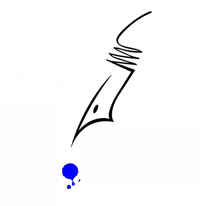
In Moshe Sharett’s personal diaries there is an entry from May 1955 in which he quotes Moshe Dayan: We do not need a security pact with the U.S.A; such a pact will only constitute an obstacle for us. We face no danger at all of an Arab advantage of force for the next 8–10 years. Even if they receive massive military aid from the West, we shall maintain our military superiority thanks to our infinitely greater capacity to assimilate new armaments. The security pact will only handcuff us and deny us the freedom of action we need in the coming years. Reprisal actions which we couldn’t carry out if we were tied to a security pace are our vital lymph . . . They make it possible for us to maintain a high level of tension among our population and in the army. Without these actions we would have ceased to be a combative people and without the discipline of a combative people we are lost. We have to cry out that the Negev is in danger, so that young men will go there.
–From Ilan Pappé’s The Biggest Prison on Earth: A History of Gaza and the Occupied Territories (2017) .







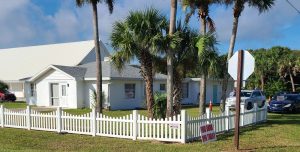




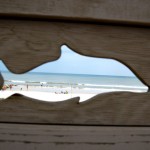




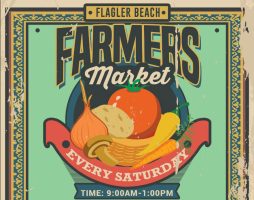
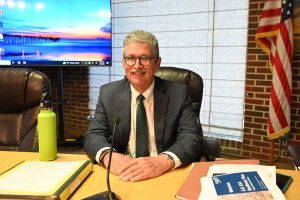
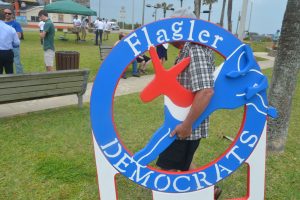

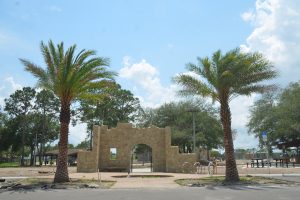






















Pogo says
@FWIW
A word:
https://www.google.com/search?q=polemic
Related
As stated
https://www.google.com/search?q=imprisonment+by+country
As stated
https://www.google.com/search?q=linear+perspective
Etc., etc.